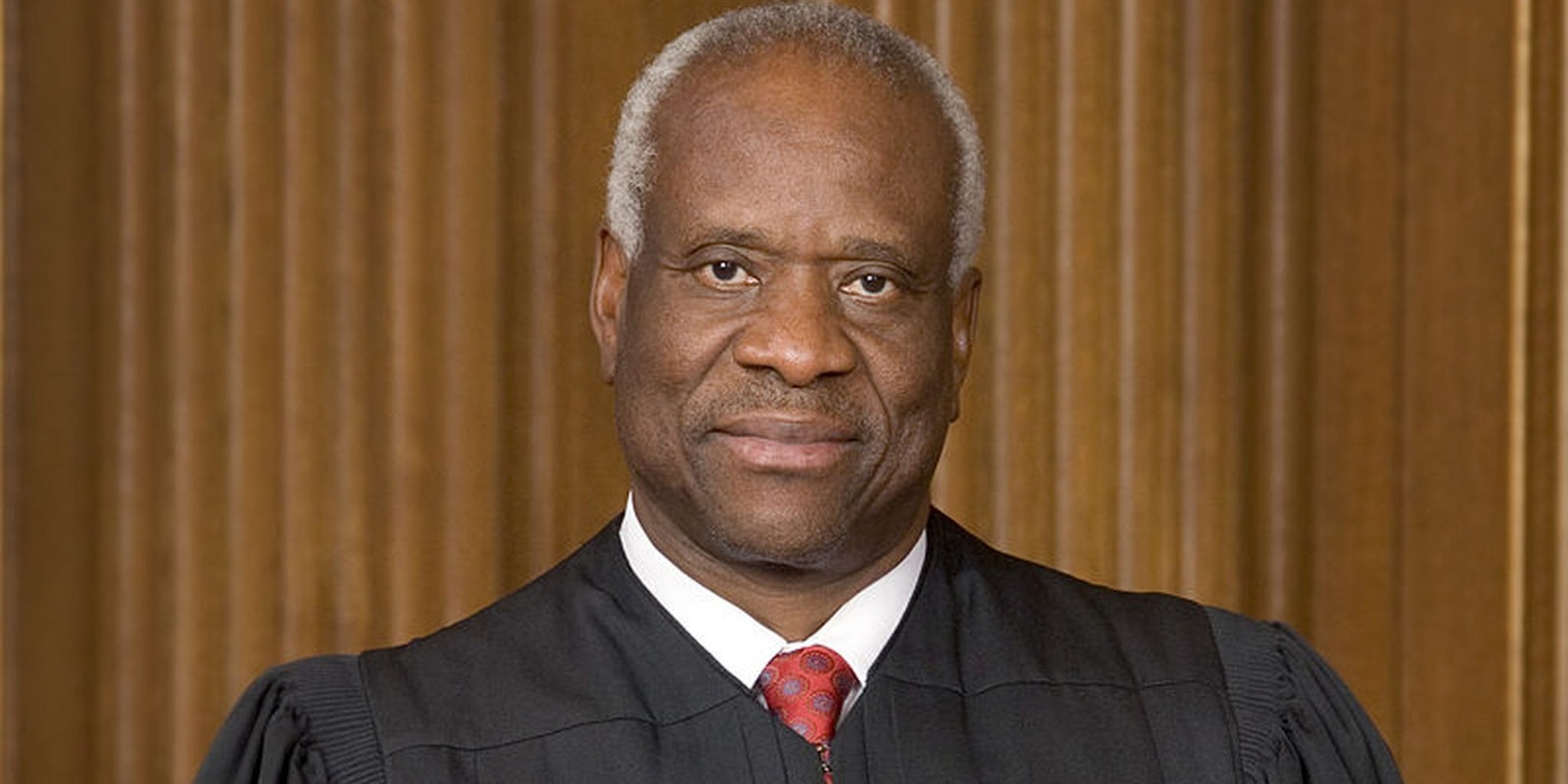On Friday, the U.S. Supreme Court handed down a decision legalizing gay marriage in all 50 states. The court’s ruling was 5-4, unsurprisingly split along partisan lines.
Anthony Kennedy, the court’s “swing vote,” wrote the majority opinion. Multiple justices in the minority wrote their own dissenting opinions in the case. Chief Justice John Roberts argued that gay marriage was a states’-rights issue instead of a federal one. Justice Antonin Scalia insisted that the question shouldn’t be decided by the courts at all, but instead left up to legislators.
On the other hand, Justice Clarence Thomas largely took aim at the idea that denying full marriage equality to gays and lesbians robs them of their dignity. In disputing this argument, Thomas, who is black, drew on historical metaphors that were highly questionable, to say the least.
The corollary of that principle is that human dignity cannot be taken away by the government. Slaves did not lose their dignity (any more than they lost their humanity) because the government allowed them to be enslaved. Those held in internment camps did not lose their dignity because the government confined them. And those denied governmental benefits certainly do not lose their dignity because the government denies them those benefits. The government cannot bestow dignity, and it cannot take it away.
Pause for a moment.
Read the quoted section above again.
Remember: Supreme Court appointments are for life.
(╯°□°)╯︵ ┻━┻
H/T Fusion | Photo by Steve Petteway, Collection of the Supreme Court of the United States/Wikimedia Commons (PD)
